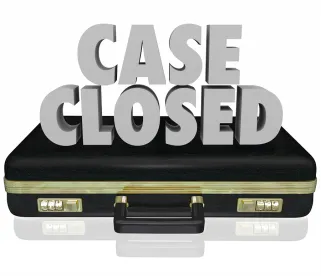The Town of Westport cannot recover clean-up costs from manufacturers of PCBs used in caulk at the town’s middle school under a variety of common law and statutory theories, according to a ruling by the First Circuit in Town of Westport v. Monsanto Company, Case No. 17-1461 (December 8, 2017). The decision ends a pair of novel cases brought by Massachusetts towns looking to the PCB manufacturers to pay for remediation at school sites.
Westport sued Monsanto, Solutia, and Pharmacia in 2014 seeking to recover the estimated $26 million cost of remediating PCB contamination at the Westport Middle School under common law and statutory theories. Monsanto, Solutia, and Pharmacia are corporately related to the Monsanto entity that manufactured PCBs for years under the name brand name Aroclor. Because of their useful properties, PCBs were incorporated into various products including caulk before their adverse impacts on health and the environment caused them to be banned. Westport alleged that PCBs used in caulk at the school when it was constructed in 1969 caused the town to incur remediation costs at the school property 40 years later when Westport renovated the building’s windows and roof.
As reported earlier, the District Court dismissed claims of public nuisance, private nuisance, trespass, and claims under Massachusetts Chapter 21E, the state analogue of CERCLA, leaving claims of (i) breach of implied warranty of merchantability for defective design and failure to warn and (ii) negligence. The lower court then dismissed those remaining claims on a motion for summary judgment; Westport appealed the dismissal of the implied warranty/failure to warn and negligence claims.
The First Circuit initially tackled the correct standard for foreseeability in order to support a claim for breach of implied warranty of merchantability. Westport argued that because it was bringing a claim for property damage, the question was whether it was foreseeable that there was a risk PCBs would volatilize out of caulk. It disputed the more difficult standard of whether it was foreseeable that such volatilization would reach levels harmful to human health. Because PCB remediation is only required when the contamination poses a risk to human health, the Court affirmed the lower court’s ruling applying the human health standard in this case of alleged property damage.
Having established the foreseeability standard, the Court determined that Westport had not proffered any scientific studies supporting a risk that PCBs volatilize from caulk at harmful concentrations when inhaled and certainly no evidence that such a risk was known to the defendants in 1969 when the building was constructed. Efforts by Westport to extrapolate from studies of paints and resins left the Court unconvinced. “The risk that PCB-containing caulk would cause adverse health effects could not have been ‘reasonably foreseeable’ in 1969 given that the existence of such a risk remains unverified by scientific studies today. … In fact, the evidence unequivocally supports the conclusion that the risk PCBs would volatilize from caulk at harmful levels was not reasonably foreseeable in 1969.”
The Court also concurred with the lower court’s determination that Westport could not prove one element of the related breach of warranty claim that the defendants had violated their post-sale duty to warn. Westport was required to show that the PCB manufacturers could have effectively communicated a warning to the end-users of PCB products – such as the school that utilized the PCB-containing caulk. The Court found the town could not. “Given Monsanto’s complex supply chain, tracing the caulk used at [the school] back to [caulk manufacturer] (based on documents containing [the school’s] contractor) is not the same as being able to identify [the school] as the end user in the first place.”
Finally, the Court dispensed with Westport’s negligent marketing claim, noting that no court applying Massachusetts law “has ever explicitly held that a negligent marketing claim can be maintained independent of a design defect claim.” The possible only exception is where a manufacturer has intentionally targeted children, which was not alleged in this case.
A similar case brought by the Town of Lexington was dismissed in 2016 without an appeal. Town of Lexington v. Pharmacia Corp., et al., (D. Mass. Docket No. 12-11645-DJC).




 />i
/>i

